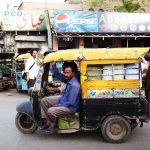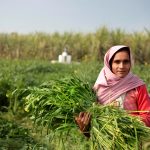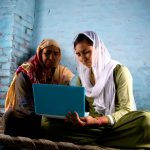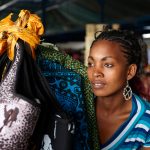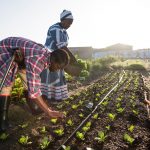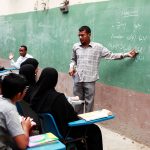The overall objective of this project is to study the position of women in the labour market as well as policies that shape their position in Kyrgyzstan and Tajikistan, two low-income countries in Central Asia. We focus on three core dimensions. First, we are concerned with the type of work that women perform in the…
Gender
Women’s Access to Public Transport and Labour Force Participation
This project focuses on the labour market entry situation for women in Pakistan. Social norms against women coming into close contact with unrelated men and the discomfort social stigma and threat of possible harassment when they do so, restricts women’s use of public transport in urban areas of many countries, including in South Asia. This…
Fairtrade, Labour Markets and Women’s Economic Empowerment in Ethiopia
Fairtrade has spread under the promise that it has the power to lift poor smallholder farmers out of poverty by providing them with technical assistance, credit, and better prices for their crops. Fairtrade is also viewed as a niche market for high value products in a context of globalisation and trade liberalisation policies that affect…
Empowering Women through Public Policy
In 2005, India’s Parliament passed the Mahatma Gandhi National Rural Employment Guarantee Act, a landmark in social protection legislation for the country. The Act moved employment into the domain of legally enforceable rights for a population no less than 120 million, making it the largest work/welfare programme in the world. Since 2009, the eponymous anti-poverty…
Globalization and the Gender Gap
The third Millennium Development Goal is to “Promote gender equality and empower women.” This goal is given some urgency by the fact that significant gender gaps remain, especially in Low-Income countries (LICs). The World Bank’s 2012 World Development Report, “Gender Equality and Development,” stressed that in the LICs women lag behind men in a number…
Girls Empowered by Microfranchising
Integrating young adults into the formal labour market is a major challenge facing developing nations, particularly in Africa (World Bank 2007). High levels of unemployment, especially among youth, have led many policymakers to advocate microfinance (cf Yunus 1999) and other forms of credit market expansion aimed at promoting entrepreneurship. However, empirical evidence on the overall…
Addressing Gender Inequalities in Earnings and Productivity in Sub-Saharan Africa through Innovative Approaches
Youth employment and micro, small and medium sized enterprise (MSME) development are often in the public debate. Governments in Africa have introduced a number of programmes to promote employment via these mechanisms, but the understanding of which interventions are most effective and for which types of individuals they have an impact is limited. Furthermore, women…
Punjab Economic Opportunity Program
The Punjab Economic Opportunity Programme: Evaluating Markets for Skill Acquisition and Employment project has examined the complete scope of all relevant decisions being made in the vocational skills market in target districts in Pakistan. This includes determining what courses to offer, examining the drivers of low take-up, relieving access constraints to markets, and returns to…
Transitions to Adulthood
Increasing schooling, delaying marriage and childbearing, and increasing labour market participation of young women are important policy objectives in Senegal as in many developing countries. These outcomes are tightly linked. Early childbearing may inhibit women’s ability to enter the labour force. Greater schooling and enhanced skill development may substantially mitigate these negative outcomes by increasing…

